In order to understand the events in Idlib, it will be useful to briefly summarize the process, up until November 15, 2015.
Consensus of the November 15th 2015
On November 15th 2015, Erdogan and Putin held a meeting in Antalya, taking the use of the G-20 summit. The meeting had an important secret agenda.
Even Putin at first, did not know about this agenda. Erdogan has addressed his Russian counterpart as “Volodya” (a sincere informal version of the name Vladimir), and said that the Turkish Army would launch an operation on the Syrian territory. The Russian President has responded to these statements from Erdogan, by saying “we will look the other way”. Moscow had turned a green light, on the Turkey’s operation abroad.
As a matter fact, the Astana process would have begun around that time instead. The two countries had agreed upon intervening in the Kurdish corridor, without the consent of the United States, who wanted to establish such a corridor.
Sabotaged by the jet plane crisis
However, a Russian Su-24 fighter jet was shot down on November 24th 2015, while 10 days has not passed since this agreement was in order. The statements of “we can strike again if necessary”, “I gave the order to shoot down”, “NATO should intervene” have risen from the AKP government. To this, Putin would say, “We were stabbed in the back”, which was understood as an insignificant statement at the time, but what the Russian leader meant when saying these words, was the agreement of the November 15th.
What has happened, that these two countries came to brink of a war, when just nine days ago two leaders have agreed upon the intervention on Syria territory, by the Turkish Army? The consensus, which could change the course of the region, was sabotaged. Moreover the breakdown of the mentioned agreement, Turkey and Russia have become the sides of a very serious geopolitical fraction.
We have explained this many times in our articles. The Turkish-Russian conflicts has always ended up with negative results for the both countries. The winner from these conflicts has always been the West. In fact, the West’s implementations of its plans in the region was always dependent on the provocation of these conflicts.
Davutoglu’s “strategic depth” has prepared the ground for the Kurdish corridor, and then the sabotage of the Gulenist pilots and Ankara’s attitude, deprived of the necessary statesmanship has avenged it. On top of these, Turkey has now lost one its potential allies. The US has left this to Russia to be taken care of. The July 15th plot was initiated right after this operation.
With this, Turkey will be politically isolated; and Russia would fall into Washington’s trap, of the US project to “establish a new government in Turkey”.
The Patriotic Party’s (Vatan Partisi (Turkey)) warns in Moscow, has ended up with positive results. When the plan the US wanted to implement through FETO in Turkey was explained, the Russian view of the issue has changed, and the idea that the re-negotiation could be established with the condition of an apology from Ankara, has come dominant.
Relations have achieved complete recovery, when Ankara kept its promises, even removed Davutoglu from the prime minister’s office, but this time not only Turkey, but the entire region has faced an American coup attempt on the July 15th. Turkish-Russian relations were accelerated as a result of this threat being repelled, the Syrian consensus of November 15th 2015, was revived once more.
The US initiative has fallen apart
The Astana process has begun with a delay, even though it was sabotaged by the fighter jet crisis. The two countries need each other. But the opposing front did not settle down with this easily. The assassination of Ambassador of the Russian Federation to Ankara Andrei Karlov, was for the re-sabotaging of this regional cooperation, that is outside the US initiative. However, the two countries’ approach to this event has also failed this attempt.
With the ups and downs, this process was finally crowned with the Sochi agreement. The US’ Greater Middle East project was buried to the pages of history. The US’ plans had no chance of success, in conditions where Turkey and Russia are cooperating in the region. Turning this equation around, was again dependent on the deterioration of the Turkish-Russian relations.
The conflict scenario in Libya also did not hold well
Washington and its various contractors have seen Libya as an opportunity. Attempts of disruption from the inside and from the outside, did not end in positive results, in Libya. Solid interests, and the need for each other between the two countries, have also been quite decisive in the Libyan issue.
The leaders of these two countries agreed first. Then, ceasefire talks have begun in Moscow. The Atlantic front has again acted to prevent the moves outside its own initiative. Although the Atlantic front has tried to undermine this process by using its influence on Haftar, Turkish-Russian cooperation has proved itself to be the only option to the resolution of this problem.
Turkish-Syrian contacts and the killing of Soleimani
In parallel to the Libyan talks, Turkish and Syrian intelligences have come in contact in the highest level under the Russian mediation. The official sharing of this event to the public, has been a glimmer of hope for the ultimate resolution of the Syrian crisis. This glimmer of hope also meant the end of the Atlantic front’s story in the region.
Meanwhile, the world was shaken down by the murder of Soleimani. We have just learned one of the hidden “sins” of this attack. According to the American New York Times Newspaper, the United Arab Emirates held some secret talks with Iran in September 2019, without the notice of the Washington, and these talks were arranged by Soleimani, who was killed in the attack. The US was going mad, as its own initiative was breaking apart.
Re-escalation of the tensions and the centrifugal forces in Idlib
This is the moment, in times when Turkey and Russia have taken the initiative, on the issues of Syria and Libya, after a week has passed, just as back in the fighter jet crisis, a situation of opposing sides has occurred. The killing of the Russian officers and the Turkish soldiers, has created a new crisis.
However, there is a rule that applies to all three countries Turkey, Syria and Russia. You can even apply this law for every country and every region that was targeted by the United States. Let us formulate this rule in the simplest way.
All centrifugal forces are the instruments of the United States, indirectly or directly, and serve the imperialist plans regardless of their names, thoughts, ideologies, intentions, and are against the peace and prosperity in the region. The centrifugal forces are triggering fault lines in the region, and it is not possible for a break in one country targeted by the United States, not to spread to other countries. In fact, any centrifugal power in Syria, be it separatist or extremist, is a guarantee for another centrifugal power.
This was why the main principle of the Astana process, was to ensure the territorial integrity of Syria. So the purge of the centrifugal powers by the centrist powers, is in favor of all the three countries.
This also serves as an indicator for the policies of the countries’ leaders. The more you are in favor of the purge, the more patriotic you are; The more you support the centrifugal forces, the more you stand against the national interests of your country.
There is no conflict of interest
This part is very important: The attitude of the Turkish leadership comes from its responsibility to itself, not the responsibilities against Russia or Syria. The same applies to the Russian and Syrian leaderships. To be more clear, the more Putin delays the full elimination of separatist forces, the more he betrays the interests of his own country. The more Erdogan supports the terrorism in Idlib, the more it harms the Turkey’s own interests. The same applies to Bashar al-Assad.
Therefore, there is no such a conflict of interest between these countries in Syria. There are also no concessions that countries need to make. Every single conflict between Turkey, Russia and Syria, is not due to the clash of interests between the countries, but because of the subjective reasons.
The US’ take-over operation
Of course, there may be outsourced interventions and arrangements. The only thing left that holds the US’ Greater Middle East Project. That is to clash Turkey with Syria and Russia, and to make Turkey isolated by leaving it away from its allies.
Washington’s “We stand alongside Turkey” lies, are just a part of this strategy. We can see that clearly, when we look at the whole picture. It is not that the United States has given up on its strategic partner the PKK/PYD. It still remains as literally the captain of the front opposite to Turkey, in the Eastern Mediterranean. Did the same United States, just declared the Deal of the Century? While Turkey is clashing the United States on every front, there is a reason why it stands by the side of Turkey in only an anti-Russia and anti-Syrian conflict. The reason, is to prevail over Turkey, and on the other hand to pursue economic threats/sanctions in order to keep the control of it.
Last week in Turkey: Is ????????#Turkey changing its axis from ????????#Moscow back to ????????#Washington?
Op-ed by Onur Sinan Güzaltan (@GuzaltanOnur)https://t.co/mxDiLMHR8o #Syria #Idlib #Russia #US #JamesJeffrey #NATO #FETO #AKP #Erdogan #CHP #Kilicdaroglu #IlkerBasbug
— United World International (@uwidata) February 17, 2020
Contacts with Damascus and the wave of migration
However, there are some internal reasons that form the ground for this crisis. First reason, is the AKP government’s persistence to contact with Damascus, as it is necessary. When the contact with Damascus is not being established, the process of ensuring the territorial integrity of Syria, and guarantee for the Turkish national security as a consequence, opens to external arrangements.
The cooperation with Damascus will also prevent a wave of migration on Idlib. It is impossible for Ankara to stop Damascus to ensure its territorial integrity. A proper state will do so, by its own nature. This is a state instinct. If Turkey is there in the process, if Turkey plans this together with Syria, they can prevent that wave of migration. Turkey stands no chance to block Damascus to ensure its territorial integrity (and has no interest either), but by cooperating with Damascus, it is possible to prevent the wave of migration, by planning the process and by ensuring that necessary measures are taken.
Sixth column activities
However, it should be noted that all three countries have forces that want to undermine cooperation. In Russia, forces with openly Westernist axes can be described as the fifth column, which is isolated, and have little to no chance of affecting the state’s policies. But we can say that Putin has a liberal team clustered around him. This sixth column activities (also nested in the media) has lurked into the crises with Turkey.
While this trend in Turkey manifests itself through sectarianism, those who are fueling the problems with Turkey are not absent in Syria. Despite they also face such lies, the imperialist lie of the Armenian genocide being accepted in the Syrian parliament is one of the examples. A mistake done against the interests of the two countries, triggering other mistakes on the both sides. The pain we have with our martyrs, is the result of such a vicious cycle.
So-called “nationalist” slogans
In all three countries, these provocations are garnished with so-called “nationalist, patriotic” slogans. However, to leave them alone in the face of a powerful enemy, to expose the main threat by creating bigger problems in front of it, and even to spend your energy in the face of potential friendly forces in which you have common interests by drawing attention away from the real threat, are the largest detriments that can be done to these countries.
It is not possible to make them fall for these policies, which make these sinister imperialist forces enjoy, by saying “a view from Ankara” or “neither quite like this, nor that”. Especially funny conspiracy theories that are completely disconnected from the life and the facts such as “The United States and Russia have agreed and they will end Turkey”, would not save this axis.
Balancing the threat with power
One thing is for sure, it is that war is won by force. It is necessary to create a unified domestic force to balance out the threat you are facing with. But the magnitude of the threat also requires building a chain of international alliances. This is also a way to reduce the cost and losses of war in any case. I do not think it is necessary to mention that these alliances will be created on the basis of common interests.
Experience of the War of Independence
Turkey’s experience in the War of Independence and the international alliances that it established are full of important lessons, in this regard. We can learn ‘’how to perceive from Ankara’s view” from those who has shaped Ankara, to its current form.
The main role of the Independence War in achieving success was undoubtedly played by “the nation’s own persistence and decisiveness”. Turkey “trusted its own power”, but as Mustafa Kemal Pasha said, “it is obligatory to join forces considering the large number of our enemies”.
The Caucasus had a strategic role in the global struggle for interests, in terms of having raw material resources and especially oil, being at the crossings of the roads from the Central Asia to the Black Sea and creating a buffer zone between Turkey and Russia. While the Entante Powers, particularly Britain, have put forward the Caucasian Frontline Plan to prevail in this struggle, Turkey and Soviet Russia are faced with the necessity to go to a military co-operation to disrupt this plan, which is a matter of survival to them.
Ankara’s policy of military cooperation was based on its strategy to save the west of the country by first creating a foothold in the east. In fact, the liberation of Istanbul and the end of the Greek occupation actually depended on it.
Two important pillars of cooperation in the South Caucasus took place in Armenia and Georgia. The elimination of British collaborative governments in the two countries and the implementation of the Soviet administrations there, have become the common plan for Ankara and Moscow.
The #Idlib crisis and ????????#US #Kurdish policyhttps://t.co/Nlt01mIrWS #Syria #Turkey #Russia #UnitedStates #NATO #Terrorist #PKK #PYD #YPG #SDF @SecPompeo #JimJeffrey @mrubin1971
— United World International (@uwidata) February 16, 2020
Common interests, not break-up points
This goal was first achieved in Armenia with common operations by the Turkish Armies and the Red Army. However, this process was sabotaged by the provocations of the West, initiatives from inside Russia and Turkey, as well as with the efforts of the Dashnak Forces to bring down the Turkish Forces and the Red Army. After all, for centuries, especially in the Caucasus, there were remnants of the ongoing rivalry.
However, the military and political leaders of the two countries saw that Turkey’s defense was Russia’s defense, and vice versa. When these facts were grasped, the common interests came forward and not the break-up points, thus the cooperation was strengthened. The problems between the two armies could be overcome by this perspective.
The Role of Kazım Karabekir in Batumi Crisis
Then, the same military collaboration came to life in the Menshevik Georgia. The British collaborator Menshevik government was destroyed, but this time the two armies clashed with each other in Batumi. A crisis has risen that will lead to minor conflicts and mutual casualties.
At that time, the delegations of the two countries were in negotiation in Moscow. For the West, the signing of a treaty in Moscow meant that their plans were ruined. The dispute between Turkey and Russia in Batumi, was the only way for the West. On March 16th 1921, the Moscow Treaty was signed, and Batumi was left to the Soviet side. However, the crisis continued as there were still two armies in the city. The West, on the other hand, was forcing Ankara into a Caucasus Federation Project against Russia under the Turkish leadership. As a result, the problem was solved by the pulling back of Turkish Army from Batumi by following the Treaty.
Kazim Karabekir’s approach with the common sense, to the matter from Ankara, has played an important role in overcoming the crisis. His letter to Mustafa Kemal on March 27th 1921 is a summary of this view:
“The actual cause of the London conference was clearly revealed to be a double game of, melting Turkey in a ring of fire by provoking the Caucasian Ambitions of the Turks alongside the Georgians, in order to wage wars against the Russians, or at least to prevent the Turks to cooperate with the Russians against the Georgians. I attribute the agreement with the Menshevik Georgian government who has understood the Entante Powers’ Caucasian plot, and even reaching to a point where a Caucasian Confederation is agreed upon, and the invasion of Batumi being approved by the National Assembly, to the lack of individuals who understood the Eastern Issue and Russia’s vital problems, and to the terrifying Entente propaganda that surrounds us from all sides. (…) As long as the Russians dominate the Caucasus, we must remain friendly or even connected to them. This can be done by convincing the Russians with words and behaviors that we do not have any ambitions over their survival interests. Since the factories and railways were built entirely according to Baku resources during the Tsarist Russia, no matter what government form Russia has, it cannot be without Baku for Russia, or Baku also cannot make it without Batumi. We should no longer be suspected from the Russians, in the north of the border (…) This is needed to protect the railway connecting these two important ports. For this, first of all our representatives in Baku and Tbilisi and elsewhere should not be the ground for counter-revolutionary committees. Our representatives must have no contrary opinions to the policies drawn by our government with either personal or external influences, and they must have clear objectives. The Entente Powers are spreading such strong propaganda and they spend such costs that, it is needed to have the intelligence and morality not to be surprised by this. Otherwise, the Entente Powers will continue to influence our civil servants and will maintain the counter-revolutionary cells in the Caucasus in the circles of our officials and a great mistrust between us and the Russians shall be maintained. This is a disastrous policy for us as long as the Russians are in power.”
Mustafa Kemal Pasha said that he thought the same way in his response to Karabekir and this sort of an action was suitable for the national interest.
True patriotism and statesmanship
This is exactly what we mean by looking at the issue from Ankara, to be a great statesman and a commander, and to carry the country to the August 30th. Karabekir was perhaps one of the most ideologically and politically distant figures to Soviet Russia, but his true patriotism, his focus on the success and the victory, led him to take the most determined stance with this cooperation.
The status of Idlib cannot even be compared to the importance of Batumi, that Turkey had at that time. Idlib is eventually a Syrian administrative territory, and there is nothing as natural as it being under control of the Syrian central authority. We have emphasized many times that this is in favor of Turkey.
The Target is East of the Euphrates
Turkey’s focus should be on the east of the Euphrates. Turkey’s stance in Idlib also matters for clearing the terrorism in the east of the Euphrates. (We explained the issue of migration wave in the above.)
Turkey has achieved a significant success in Syria, by means of military operations that began in 2016 and has not allowed the American corridor to be established. With this success, the alliances it established within the international plan and the Astana process have played a very important role.
But for the ultimate success, it is necessary that this axis be insisted on, and that the mistakes made in the process to be abandoned. It is needed to be in contact with Damascus for our national interests. Turkey does not need mediators to come in contact with its neighbor.
Turkey’s insistence on the Astana process, will also allow its allies to take a more stable stance on the east of the Euphrates. Turkey will gain new allies in the Eastern Mediterranean.
Russia could not make it without Turkey and neither could Turkey without Russia. Syria and Iran are also included in this equation. In this process, it is inevitable that the necessities will be decisive again. These necessities impose itself enough to determine not only the government policies, but also the governments themselves. But by the time passes, the cost we pay goes up.
So let us look from Ankara’s view, let us learn from Kazim Karabekir!







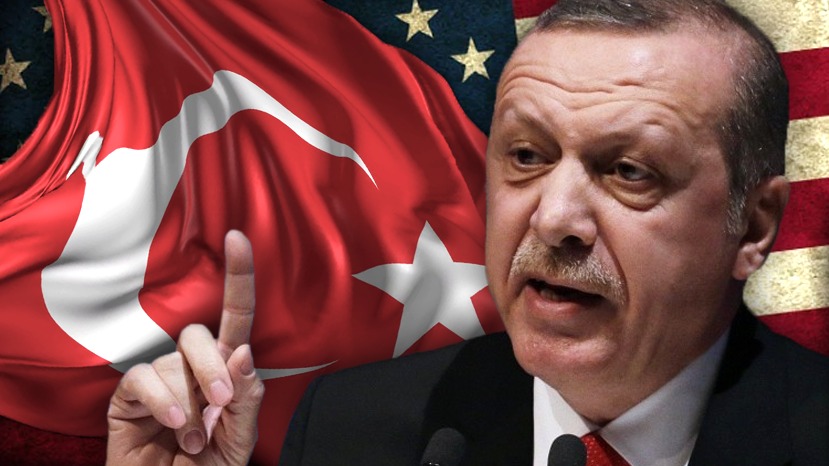

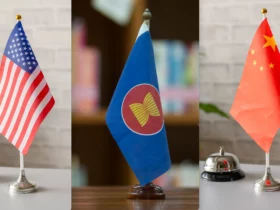
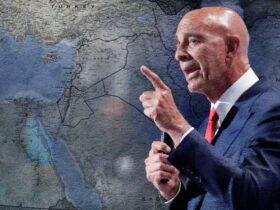
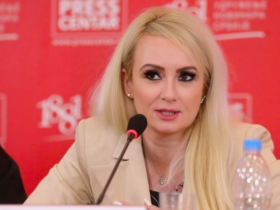



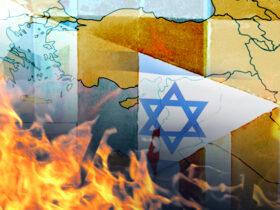

Leave a Reply